Repose
A mental wellness app for people dealing with high stress environments.
This project was for my Interface Design course at SCAD. It spanned 10 weeks and was centered around user research and empathy.
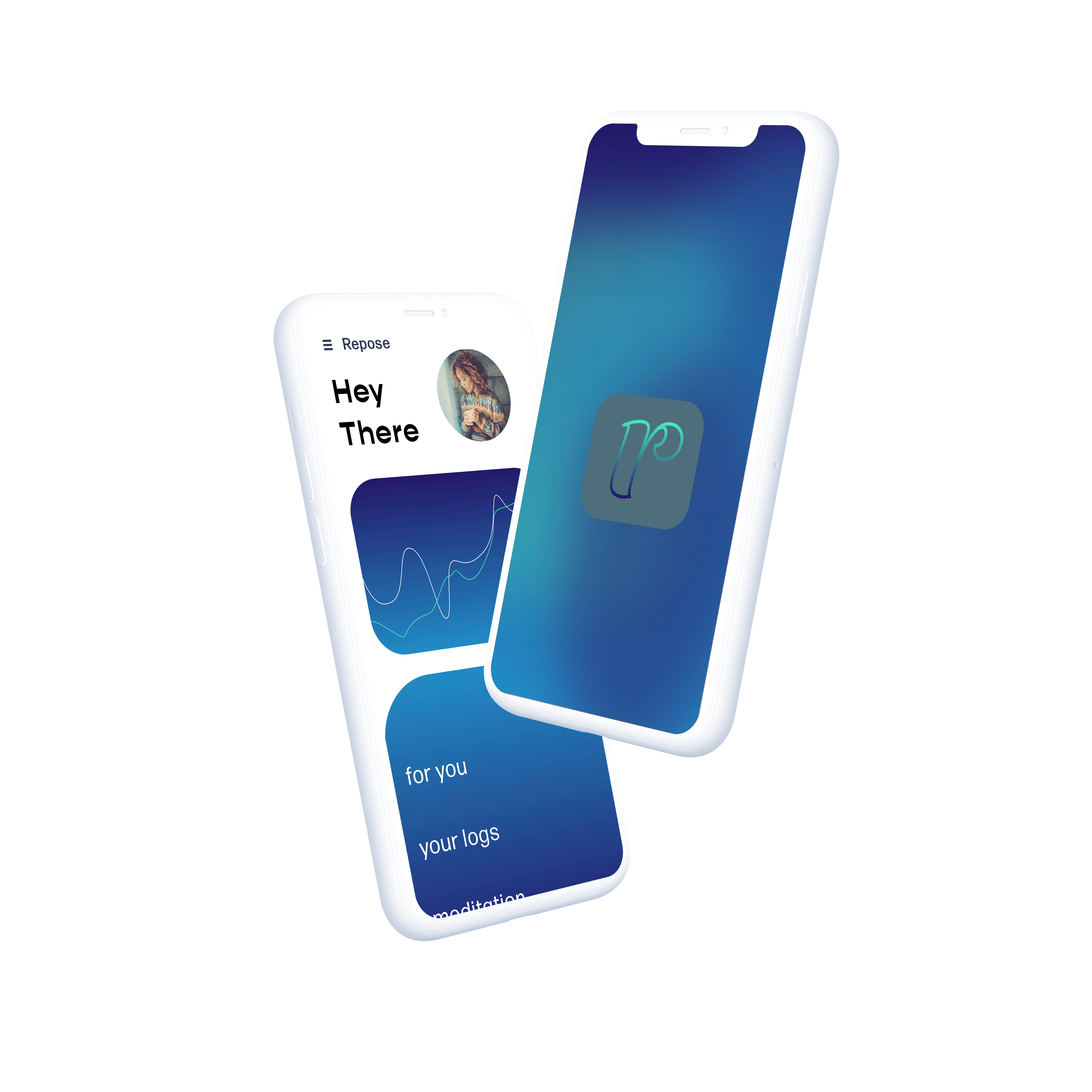
Problem:
There are no wellness apps that confront the idea of calming someone who is having any sort of panic attack directly, only apps meant to soothe you in general.
Solution:
Create a wellness app that allows users to catalog their moods and build breathing and meditation exercises for them to use when they are feeling anxious
There are no wellness apps that confront the idea of calming someone who is having any sort of panic attack directly, only apps meant to soothe you in general.
Solution:
Create a wellness app that allows users to catalog their moods and build breathing and meditation exercises for them to use when they are feeling anxious


The professor of the Interface Design course I took at SCAD focused on designing around a specific persona and their needs. This was was where I learned about user research, case studies, and the importance of empathy in the design process.
Phase one
user research & IdeationI carried out a series of interviews with people transitioning from being a college student to a working professional. This included college seniors and recent grads who were in the process of landing their first job. I realized that people have incredibly different ways they handle stress and anxiety and that there were very few areas of overlap. The only common threads I noticed were that everyone was trying to gain a still, quiet moment or a sense of calm when dealing with any sort of episode.
Building off of my findings
I took my newly gained insights and built a persona off of them for whom I would structure the app around. It was a very new experience to me, but the process of thinking like someone else and moving my personal preferences to the side enhanced the final product significantly.

Phase two
Architecture, flow & wireframing
Architecture
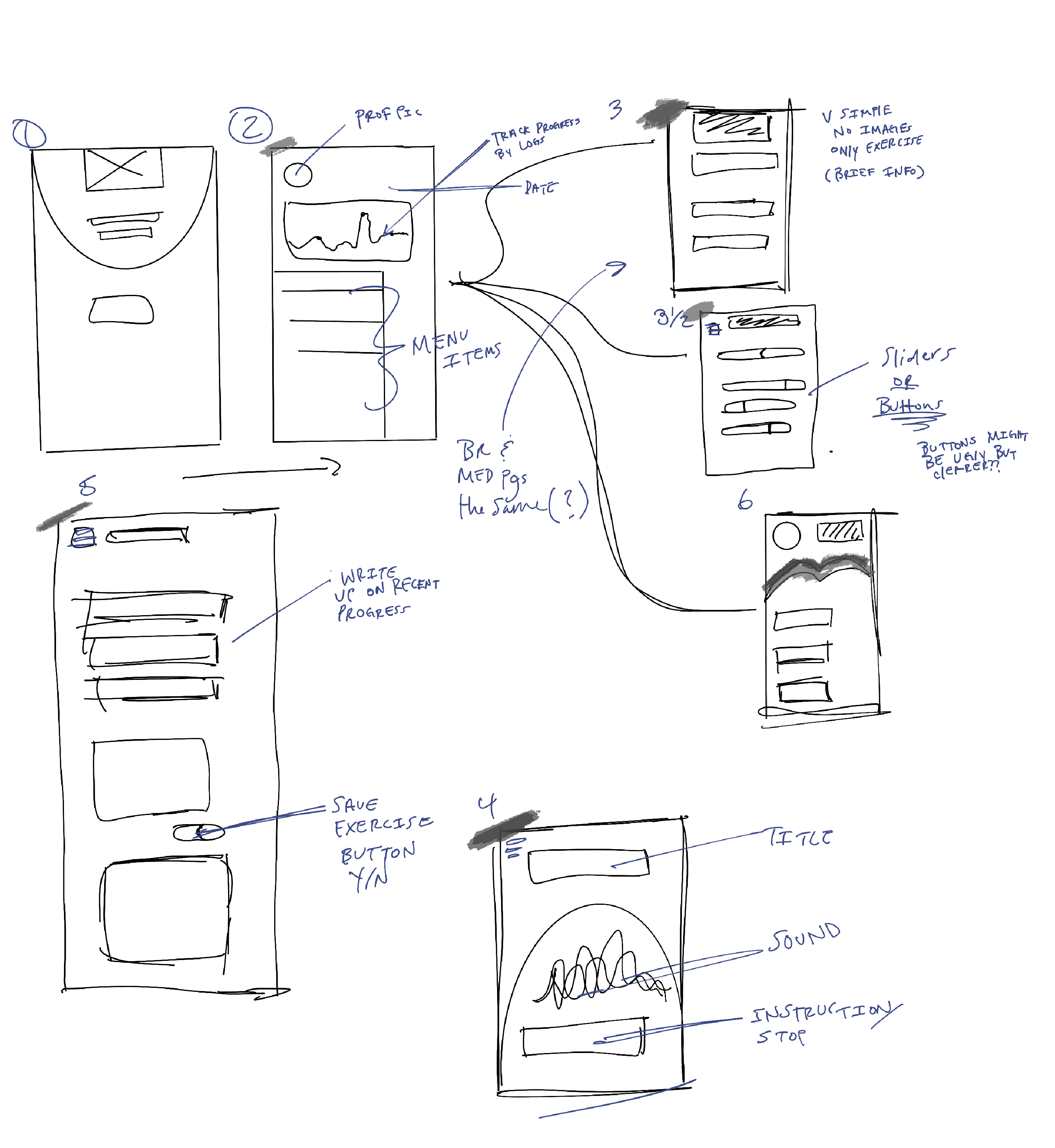
Early wireframes
feature ideation
I ended up spending more time on the wireframing process than I would have liked, but I don’t regret the time spent because I ended up realizing that I wanted to take the UI a very different route visually about halfway through, and since it was I was only the wires I wasn’t too committed to anything yet.
Phase three
Final design
Brand guide
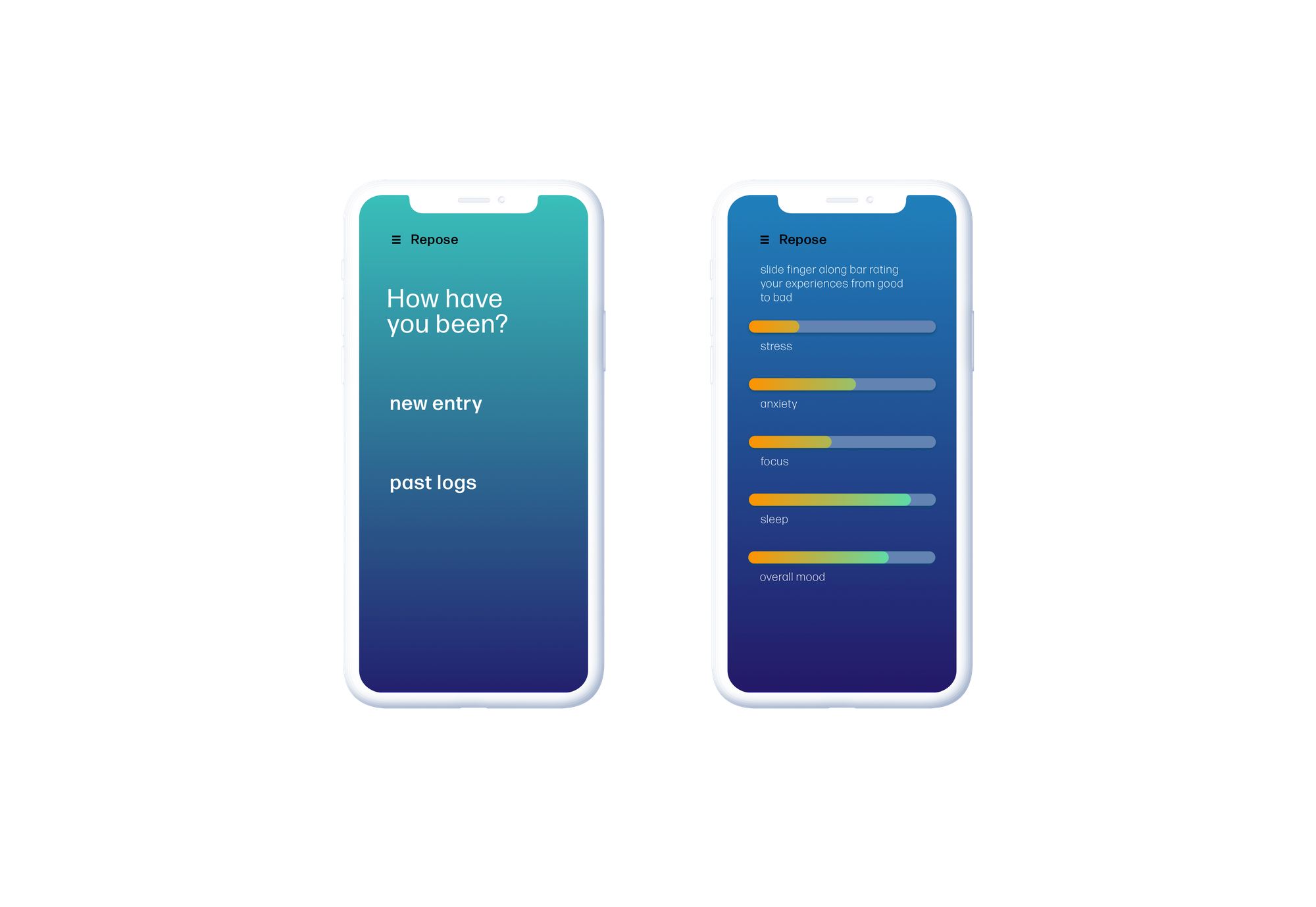
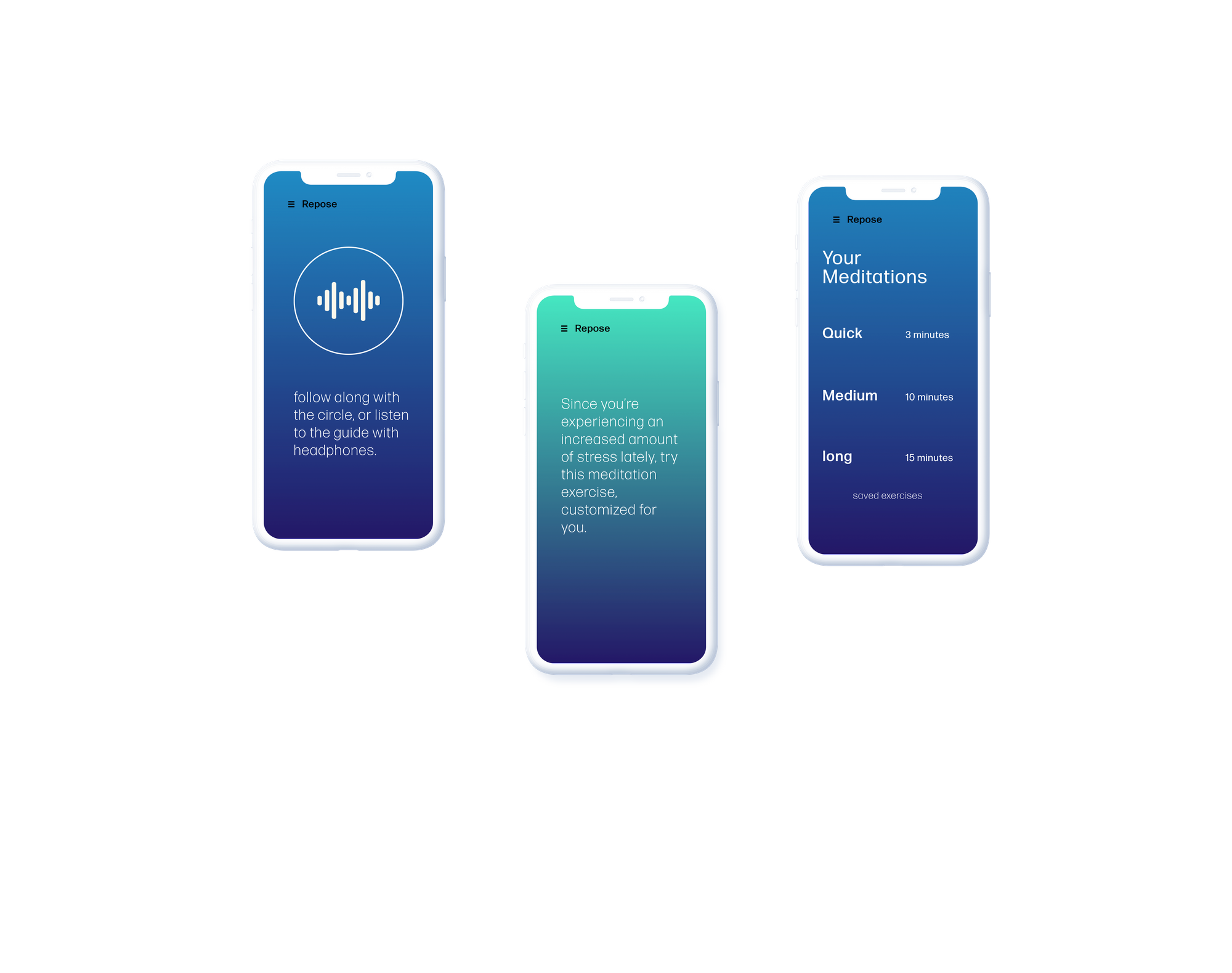
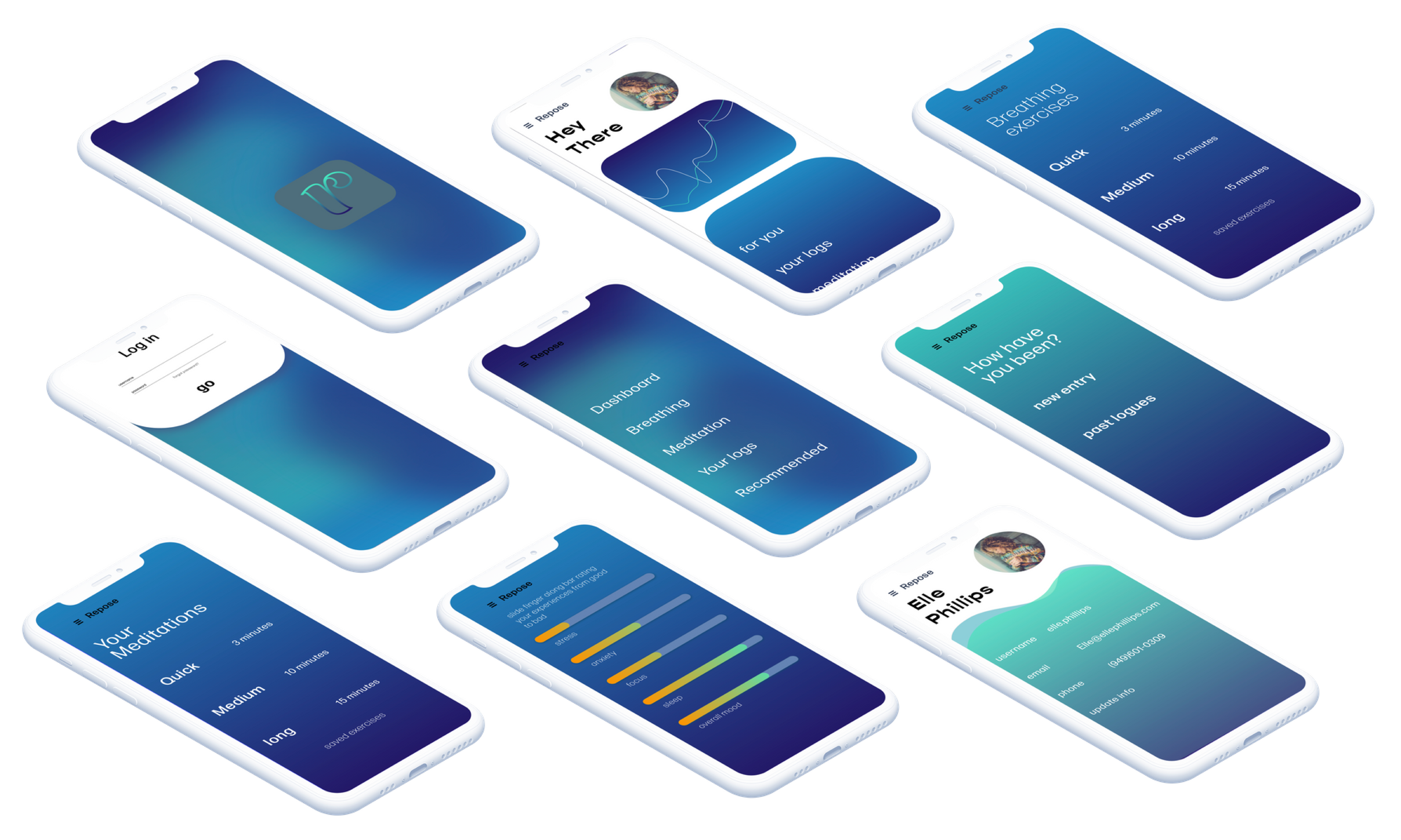
What I learned
The lectures I had the privilege of hearing from my professor about the user research process and the importance of leveling with them and seeing from their POV proved invaluable for the rest of my time at SCAD. Luckily, this was one of the first classes in my major curriculum that I took, so I was able to grow my research skills even more throughout the rest of my academic career.
